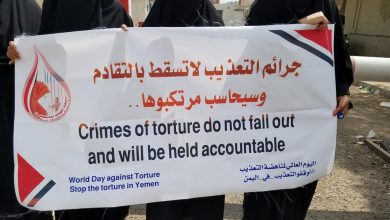A Joint Houthi-Government Committee to Discuss Salaries and Oil Exports

Yemen Monitor/ Aden/ News Room:
A government source reported on Thursday that the Yemeni government and the Houthi armed group have agreed to form a joint committee to discuss economic files, based on an agreement to de-escalate in regard of the economy files between the two parties announced last Tuesday.
Russia’s Sputnik news agency reported that, with mediation from the United Nations and Oman, the government and the Houthis have reached an agreement to form a joint committee to discuss several economic issues, including the payment of governmental employees’ salaries and the resumption of crude oil exports.
The source also indicated that among the issues are addressing the division in the banking sector, unifying the currency, ensuring the neutrality of the Yemeni central bank, and the mechanism for paying salaries.
Houthi leader Ali Nasser Qarshi, one of the Houthi negotiators, previously stated on the X platform that they had agreed to form a “committee to discuss the remaining economic issues, salaries, and others, in light of the roadmap.”
Hans Grundberg, the UN Special Envoy for Yemen, announced on Tuesday that the internationally recognized Yemeni government and the Houthi group had agreed on measures to de-escalate the economic and banking situation and expand direct flights between Sana’a to include Cairo and India.
At the beginning of July, Saudi Foreign Minister Prince Faisal bin Farhan said that the Yemeni roadmap was ready and that “we hope to sign it soon.”
The Houthis have refused to pay the salaries of government employees in areas under their control for years. Since October 2022, oil exports from the country have ceased after the Houthi group threatened to attack ships and ports under government control.
In December, Grundberg presented a roadmap, stating that it came after intensive consultations in Iran, Saudi Arabia, the UAE, Oman, and other countries, and “will include, among other elements, the parties’ commitment to implementing a nationwide ceasefire, paying all public sector salaries, resuming oil exports, opening roads in Taiz and other parts of Yemen, and continuing to ease restrictions on Sana’a airport and Hodeidah port. The roadmap will also establish implementation mechanisms and prepare for a Yemeni-led political process under UN auspices.”
On March 18, the Yemeni government announced the suspension of the UN roadmap for a ceasefire with the Houthis, “due to the group’s escalation in the Red Sea and threats to international navigation

